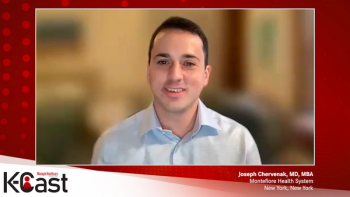
Females with Disabilities Experience More Barriers to Reproductive Health Services, Study Finds
The most common barriers were logistical and access, according to results of a cross-sectional study published in JAMA Network Open.
According to the
People with disabilities have an increased risk of having poor health, more healthcare needs, and gynecological cancers compared with those without disabilities. Despite these risks, individuals with disabilities are less likely to receive gynecological cancer screenings, such as a Pap smear, compared with he general population.
The ADA mandates equal access to health services for people with disabilities, and some small studies have found that individuals with disabilities often encounter barriers to accessing reproductive health services, including lack of insurance that covers their preferred method of contraception, lack of privacy for discussing sensitive reproductive health topics, and lack of information and resources regarding gynecological cancer screenings.
To bring light to the extent to which people with disabilities experience these and other barriers to reproductive health services, researchers at the Bixby Center for Global Reproductive Health, Department of Obstetrics, Gynecology, and Reproductive Sciences at the University of California San Francisco, conducted a cross-sectional study of 6,956 English- and Spanish-speaking people assigned female at birth. The results were published last month in
The study, led by M. Antonia Biggs, Ph.D., surveyed participants aged 15 to 49 years between December 2021 and January 2022 regarding barriers to accessing reproductive health services they had experienced in the past three years. Reproductive health services included a Pap smear and family planning. The study's primary outcomes were the number and types of barriers encountered when trying to access reproductive health services in the past three years.
Participants who had ever tried to access reproductive health services were asked to select from the following ten predefined barriers: finding transportation, getting time off work or school, finding childcare, finding a facility that offers reproductive health services, finding a place that feels comfortable, finding a place where providers speak one’s language, paying for services, finding a place that accepts one’s insurance, having privacy to receive services (for example, being away from caregivers), and having a partner or family member who does not want the participant to go to the services.
Barriers were grouped into the following conceptual themes: logistical, access, cost, privacy, and interpersonal relationship. The study results showed that participants with disabilities were more likely to experience barriers to reproductive health services compared with those without disabilities (69% versus 43%). The most common barriers were logistical (69%) and access (49%). The highest percentage of participants experiencing three or more barriers were those with disabilities in activities of daily living (75%), communication (65%), and multiple disabilities (60%).
The investigators concluded that the study findings indicate significant disparities in access to reproductive health services among individuals assigned female at birth with disabilities.
They wrote, “The findings highlighted the need to alleviate barriers to [reproductive health] care, including improving the transportation infrastructure, ensuring the availability of foreign language and sign language interpreters, training practitioners to better serve their patients with disabilities, and reinforcing patient-centered approaches that engender inclusivity in health care settings.”
The researchers recommend additional research to understand and address the experiences and unmet reproductive health needs among individuals with disabilities.
Newsletter
Get the latest industry news, event updates, and more from Managed healthcare Executive.






















